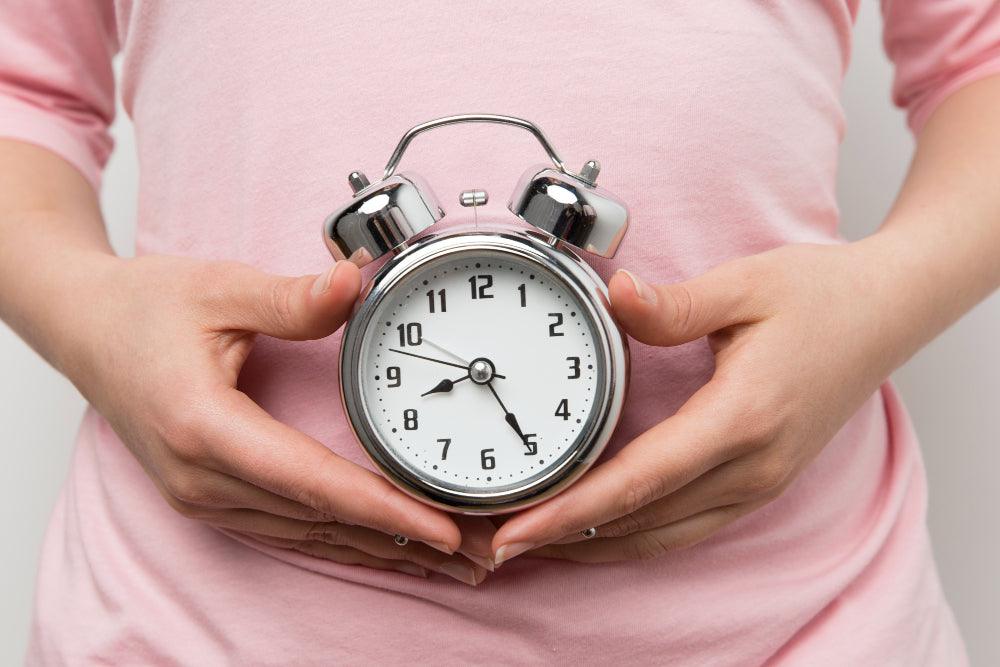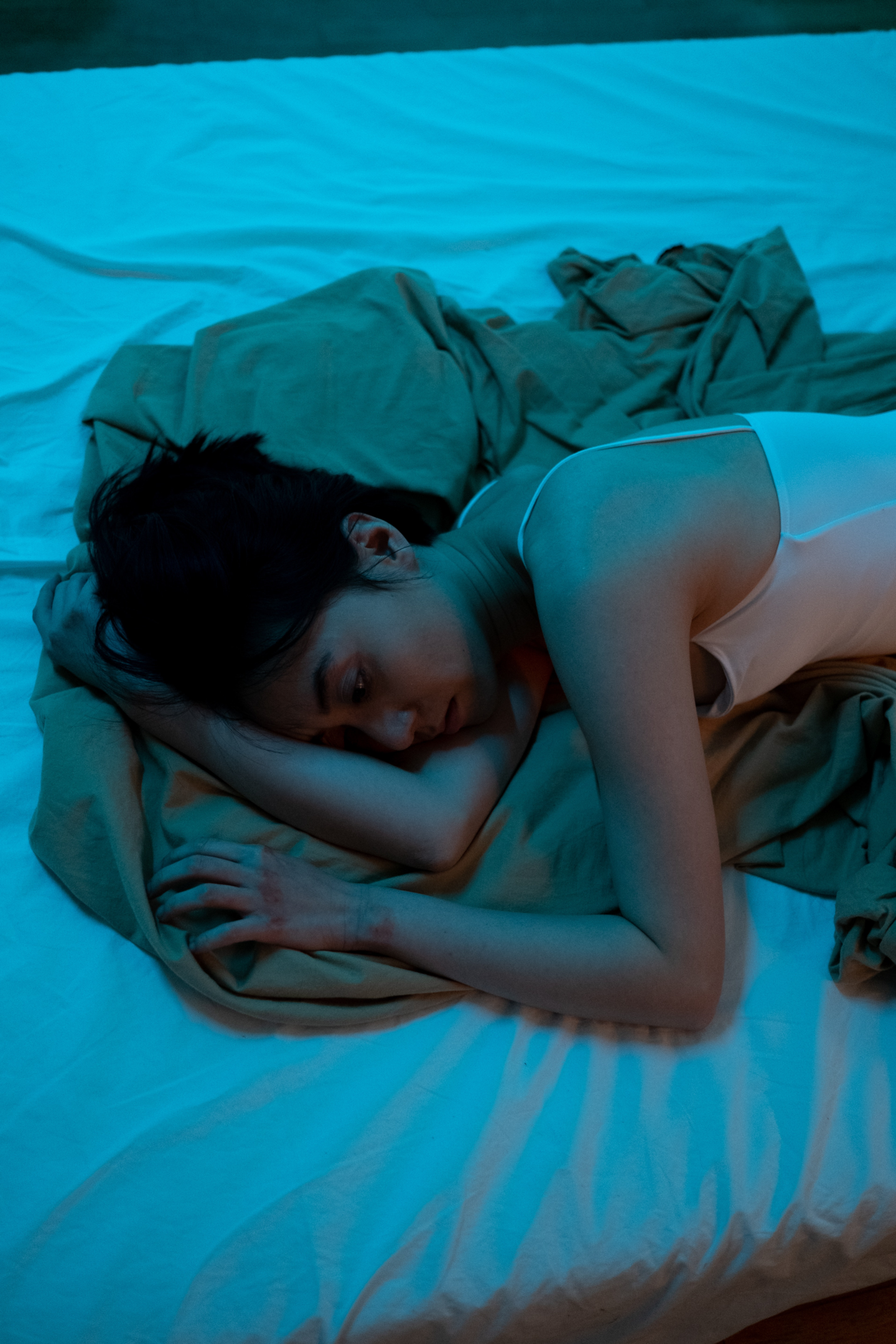What are the signs that perimenopause is ending?


Are you in your late 30s or early 40s and have started having some unexpected changes in your menstrual cycle? The irregular periods and other changes in that age mark the start of perimenopause.
Hormonal imbalances and the mood swings that follow are of no surprise to women of reproductive age. The hormonal changes continue for 75% of a woman's life. Perimenopause is also a part of these changes in the female's body.
To get a clear understanding of the signs of the perimenopausal ending. Let us learn a little bit about it.
Perimenopause can be defined as the slow transition from the fertile to the unfertile age of a woman.
It may seem very simple like just menses stop, and you enter menopause, however, it is not that simple. Periods stop after a long phase of different hormonal changes, which produce wildly fluctuating hormones and perimenopausal symptoms. After suffering from these changes, a woman enters into menopause.
This long and complicated time is known as perimenopause. Its ending marks the start of menopause.
There is no exact date for the start of perimenopause. The beginning of the menstrual cycle plays a vital role in determining its start. Early menses leads to early menopause and vice versa.
For instance, females who got periods at an early age, suppose at ten years, get into perimenopause in their late or mid-30s. At the same time, those ladies whose menstrual cycle started late got it in their early or late 40s.
According to the Scotland health service reports, the average age of menopause is nearly 51 years. This report estimates that most British women's average age at the beginning of perimenopause is the early 40s.
Since it is a long process, gynaecologists have classified it into two stages. They make two phases depending on irregular periods, mood swings, and other menopause symptoms.
During the early stage, interruption in the menstrual cycle is significantly less. Most women report other symptoms of perimenopause, like changes in the monthly date of the menses, vaginal dryness, anxiety, and hot flashes.
The menstrual cycle becomes more irregular in the later or final stage of perimenopause. Periods stop for 60 days. This stage is very problematic as it exerts painful menopause symptoms. We will discuss these indications later on in the article.
It is an age-related natural process. It occurs because of malfunctioned ovaries. The hormone levels fluctuate as ovaries no longer ovulate( produce no more eggs) and release less oestrogen and progesterone in the blood.
Apart from its natural causes, a few things could also cause perimenopause such as;
Smoking
Alcohol consumption
Unhealthy fast food
Malnutrition
Surgical removal of the ovaries
Perimenopause is the transition phase that brings you to menopause. In perimenopause, you face irregular periods. While menopause is a menses-free time, no menstrual cycle occurs for 12 consecutive months.
The period of perimenopause is different for every woman, but it is estimated that it usually takes ten years to complete. The first five years comprise the early stage, whereas the later five are the final stage.
When a woman reaches menopause, her hormone levels change, affecting the menstrual cycle. These hormones are;
Oestrogen (women's hormones) fluctuates unevenly throughout the late perimenopause
Follicle Stimulating Hormones may increase in the blood
Progesterone levels also get altered
Perimenopause is an important hormonal event in a woman's life. The fluctuation of hormone levels influences the menstrual cycle. The intensity of the perimenopausal symptoms is different in every woman. Some find it difficult to cope with them, but some women have bearable subtle signs.
Following are the critical signs and symptoms of perimenopausal ending;
The start of perimenopause occurs with the change in the monthly menstrual dates. During the first five beginning years, delays in periods become very common. But as soon as this transition is about to complete, menses become more infrequent. Perimenopause could delay the menstrual flow for about 60 days.
The following conditions may occur in irregular periods;
Gaps between the periods:
When perimenopause is ending, the gaps between the periods are not fixed. Instead, the delay could be more frequent between some months and very small in the next. Some women even report 2-3 times menstrual flow in a single month.
No fixed blood in periods:
Every period in the perimenopausal time bleeds a different amount of blood. During some, you may have heavier blood flow; in others, you have less.
Painful menstrual cramps with no bleeding:
Some women report menstrual cramps without periods. These cramps cause sleep problems and menstrual migraines.

Frequent blood spots:
Some women notice a blood stain on their pads during the two menstrual cycles. These are called blood spots. Most women get irritated with it and experience social discomfort.
Hot flashes are symptoms of perimenopause. When perimenopause is ending, it becomes more frequent. These may happen daily with different intensities.
The following signs may recognize hot flashes:
Extensive sweating:
It happens especially during the night hence also known as night sweating. This sweating is so intense that it can wake you up from sweet dreams, leading to sleep problems.
The intense feeling of warmth:
It has been reported that many women feel a warm sensation during hot flashes. It happens in the upper body, which comprises the face, neck, and chest.
Increased heartbeat:
Night sweating occurs like a panic attack. The heartbeat becomes rapid, which may take a few hours to return to its original rate.
A chilled wave passes your body:
Sweating is a process that can lower the temperature of your body. After extensive sweating, a chilled wave passes through your body in hot flashes, reducing body temperature.
Most women experience hot flashes and night sweats at least once during the day, most commonly at night. Though in the perimenopausal ending, it becomes more frequent and can occur at any time of the day.
Though hot flashes and night sweats are nothing to worry about, you should concern a gynaecologist for a check-up if it starts to disturb your daily life.
Another perimenopausal symptom is severe vaginal dryness. The oestrogen hormone manages the vaginal fluid. At the late stage of perimenopause, this hormone decreases, which makes you dry.
Vaginal dryness or vaginitis is caused by changes in its tissues under the influence of the oestrogen hormone. The tissues become thinner, looser, and less elastic. These symptoms are named genitourinary syndrome of menopause.
Vaginal dryness can be recognized as;
Decrease sexual pleasure:
As the woman reaches perimenopause, the vagina becomes dry, which may hinder the feeling of pleasure. Some doctors suggest additional lubricants.
Burning sensation around vulva:
The deficiency of vaginal fluid causes irritation and a burning sensation around the vaginal lips. It could become so intense that it may cause sleep problems.
Painful sexual intercourse:
The intercourse becomes painful, and sometimes the vagina can even bleed, especially in late perimenopause and early menopause.
Vaginal inflammation:
The vaginal fluid protects it from dryness and cleans and shelters it from bacteria and infections. The dry vagina can become an easy target for diseases.
Most women report sleep problems and menstrual migraines during the late phase of perimenopause. It becomes challenging for menopausal women to sleep properly at night.
There are the following factors that create sleep problems. Some are mentioned below;
Night sweat:
Women find it difficult to fall asleep with night sweats. If they somehow go into dreams, sudden hot flashes awake them. Interruptions in sleep become more frequent and cause insomnia.
Fluctuation of different hormones:
Progesterone is one of the hormones that get changed around menopause. This hormone influences sleep patterns. It may also cause insomnia and mood swings, and painful intercourse.
Irregular periods with intense cramps:
Periods days are already challenging for women to sleep. Irregular periods make it worse and give rise to sleep problems.

When a woman reaches menopause, the number of eggs or follicles reduces to none. Follicle Stimulating Hormone activates these follicles. This FSH is regulated by another hormone known as oestrogen, which signals the brain to produce more FSH. So up to an extent, FSH will increase as oestrogen decreases. However, it is not the same as in the case of perimenopause.
Follicle Stimulating Hormone (FSH) plays a vital role in women's reproductive cycle. This hormone control two main functions;
Promotes ovulation
Promotes the secretion of the oestrogen hormone
Doctors may prescribe you a blood test to confirm the level of FSH in your blood, as it can hint at the onset of menopause. When women reach the late stage of perimenopause, there is a significant decrease or increase in the progesterone level. The same goes for the oestrogen hormone.
Perimenopause is more complex than menopause and post-menopause. Apart from the signs mentioned earlier, other menopause symptoms are;
Blood clots in the period
Menstrual migraine
Anxiety and depression
Psychiatric symptoms like memory loss
Hair becomes weaker and falls too much
Mood swings become more stable
Weight gain
Increase urination
Eyes or mouth may become dry

Due to the varied results from many different tests, asking about delaying perimenopause doesn't boil down to a simple answer, it's complicated.
Human ovaries can produce a fixed number of eggs and follicles. At a certain age, ovaries lose their function, and perimenopause starts. There is no way you can force your ovaries to produce more and more eggs.
Family and genetic history influence the beginning of perimenopause symptoms. Some physicians say that hormonal replacement therapy could relieve symptoms, and some doctors believe that a few dietary and lifestyle changes can delay it for several years. These changes can be summed up as follows;
No smoking
No alcohol
Include animal protein in the diet
Eat a variety of seafood
Eat green vegetables and fibrous fruits
A depression-free life
Natural life processes do not require any treatment; though their symptoms may be irritating. With processes such as perimenopause, we can relieve the symptoms, which create problems in ordinary life.
According to the British Menopause Society, 78% of women experience severe symptoms, of which only 27% take treatment. Many women do not prefer treatments to relieve symptoms for personal reasons.
Doctors can prescribe the following changes to relieve the menopause symptoms;
Lifestyle changes
Medicines
Yoga and exercise
Hormonal Replacement Therapy
If you do want to relieve menopause symptoms, you can go for hormonal replacement therapy. The following two types of hormones are given in HRT;
Progesterone
Oestradiol
These hormones come in different forms like tablets, gels, transdermal patches, and others. Depending upon the menopausal symptoms, your doctor suggests how and how many hormones you should take.
To confirm whether you are in perimenopause or menopause, you can undergo a test in which urine and blood samples are collected by a doctor along with the details of your menstrual cycle history. The test alone cannot demonstrate the phase of your reproductive cycle. Many other menopause symptoms also matter.
You have many options for a home test kit to check hormonal levels. These kits usually have two types;
Home kits that use blood and saliva
Home kits that use urine
These home kits can detect three different hormones;
Follicle Stimulating hormones (FSH)
Luteinizing hormone (LH)
Oestradiol (a type of oestrogen hormone)
We recommend you take a look at our Perimenopause Test home kit, which will help you in assessing your sex hormone levels.
The transitional phase of perimenopause is complex and shows many different symptoms. You may feel many times that you have may have entered menopause, but then you have periods again; hence you should handle this phase with patience.
Women whose perimenopause is ending should look after themselves. They should monitor the menopausal symptoms with a sharp eye as the signs like night sweats, irregular periods, and weight gain could also indicate other disorders.
Last but not least, do not neglect the expert advice of a gynaecologist. Their guidelines will help you in your transition to menopause and also relieve symptoms.










Plus get the inside scoop on our latest content and updates in our monthly newsletter.